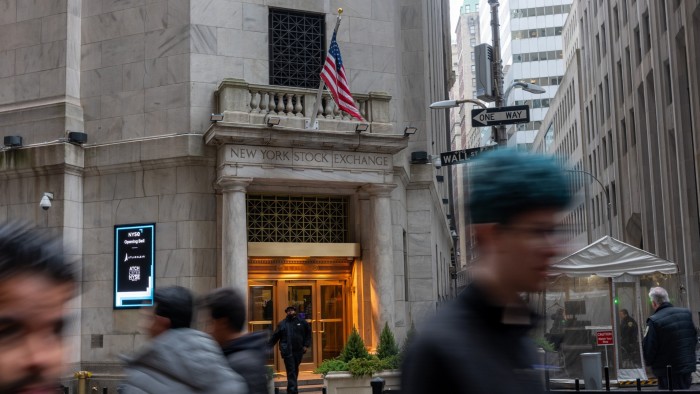European fund group warns of ‘systemic’ risk from US settlement reform

Simply sign up to the Currencies myFT Digest -- delivered directly to your inbox.
Looming changes to the time it takes to settle trades on Wall Street pose a “systemic” risk to currency markets, European asset managers have warned.
The European Fund and Asset Management Association said that around 40 per cent of daily foreign exchange deals would be shut out of the main platform for reconciling currency trades when the US moves from two-day to one-day settlement in May. That total could rise to “hundreds of billions” on volatile days, it added.
The group, which represents the €28.5tn European investment industry, has asked major central banks, which jointly own the CLS currency settlement service, to implement urgent measures to address the risks.
“Putting $50bn to $70bn or greater at risk, on a daily basis, in the world’s major currencies should be a significant concern,” warned Efama in a paper published on Thursday. “This is of systemic importance.”
Asset managers are slowly waking up to the full implications of a move by the US and Canada to shorten settlement times for stocks, bonds and exchange traded funds. European institutions hold more than $11tn of US equities and debt last year, according to the Federal Reserve.
The US will shorten the window, when deals are matched and legally transferred from sellers to buyers, to reduce the amount of capital tied up until trades are finalised. The shorter settlement timeframe is known in industry jargon as T+1.
The US’s shift is likely to throw interlinking markets, such as foreign exchange, shares and cross-border ETFs, out of synchronisation. Custodians and asset managers have relied on having at least one full working day to iron out operational issues, from finding the money or the assets, resolving mismatches or overcoming local IT issues.
From late May, that timeframe will drop to as little as two hours. Many asset managers push a significant part of trading to the US stock market close, at 4pm eastern time, while CLS closes at 6pm.
To adjust to the shift, many fund managers are setting up teams to finalise deals late at night in European or Asian time zones.
CLS is the main platform where the majority of foreign exchange trades are settled, and relies on a time window when all major central banks’ real time gross settlement are operational. Although it typically handles $6.5tn a day, it nets down outstanding payments so only around $65bn a day changes hands.
If investors cannot access CLS, they will need to find more cash to ensure their trades do not fail.
Efama has called for CLS to extend its opening hours to allow overseas investors more time to source the foreign currency they need to finalise deals.
Phil Lloyd, head of non-bank financial institutions at NatWest Markets, warned clients this week that settling trades directly with buyers, rather than via CLS, “adds credit and operational risk”.
Efama added that urgency was “further compounded” by the fact MSCI, the index compiler, would rebalance its closely followed MSCI World index only days after the US shift to T+1.

Comments